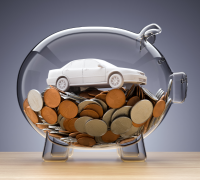Buy vs. Lease — Car?

Last summer, my daughter wanted her own car, to get to work and show rehearsals. But I didn’t feel like we needed to buy another car, specifically for someone who was going off to school soon. So, I was left with the task of figuring out how to provide transportation, without creating unnecessary long-term costs.
This led me to the question: When should you buy a car, versus lease? It’s complicated and, like a lot of financial decisions, depends on a number of circumstances.
In general, leasing makes sense if you don’t intend to keep your car for the long haul. For example, if you always have a car payment, then you might want to consider leasing, which generally means a lower monthly payment than a car loan of the same term. Another consideration is mileage — lower is generally better for leasing, although it is possible to add mileage to the initial lease agreement. In a recent analysis for a client, we determined that the client’s need for frequent, low mileage business-related trips in the car suggested that leasing might be a better alternative than buying, especially if it could be written off as a business expense. Finally, if you like ”brand new” in your transportation, then leasing is definitely for you. There is a financial downside to driving the latest model, though, and that is continuous payments, without actually buying anything.
Therefore, the argument in favor of buying is that, while the initial costs of ownership are higher, you have an asset at the end of the loan period (if financing). If you are able to obtain favorable financing, the total cost over the initial loan period might be even lower than the lease payments. But the bottom line is, eventually you pay off a loan and no longer have that expense. For people who maintain and care for their cars and replace them infrequently, buying is certainly a more economical option. In addition, insurance costs may be higher for leased cars, which weighs in favor of buying.
In our case, the third option we considered was purchasing a cheaper, used car outright, which is what we chose to do. We only needed additional transportation for a short period of time, and I didn’t want another car payment in any form. But even if you are looking for a longer term investment, buying a car almost always makes more financial sense. Feel free to reach out for a quick buy versus lease analysis based on your personal circumstances.
Meet Kristan Anderson, CEBS®, CFP® | Dir. Of Retirement Plan Services & Dir. Of Financial Planning »
Read more West Financial blogs »
West Financial Services, Inc. (“WFS”) offers investment advisory services and is registered with the U.S. Securities and Exchange Commission (“SEC”). SEC registration does not constitute an endorsement of the firm by the SEC nor does it indicate that the firm has attained a particular level of skill or ability. You should carefully read and review all information provided by WFS, including Form ADV Part 1A, Part 2A brochure and all supplements, and Form CRS.
Certain information contained herein was derived from third party sources, as indicated, and has not been independently verified. While the information presented herein is believed to be reliable, no representation or warranty is made concerning the accuracy of any information presented. Where such sources include opinions and projections, such opinions and projections should be ascribed only to the applicable third party source and not to WFS.
This information is intended to be educational in nature, and not as a recommendation of any particular strategy, approach, product or concept. These materials are not intended as any form of substitute for individualized investment advice.

